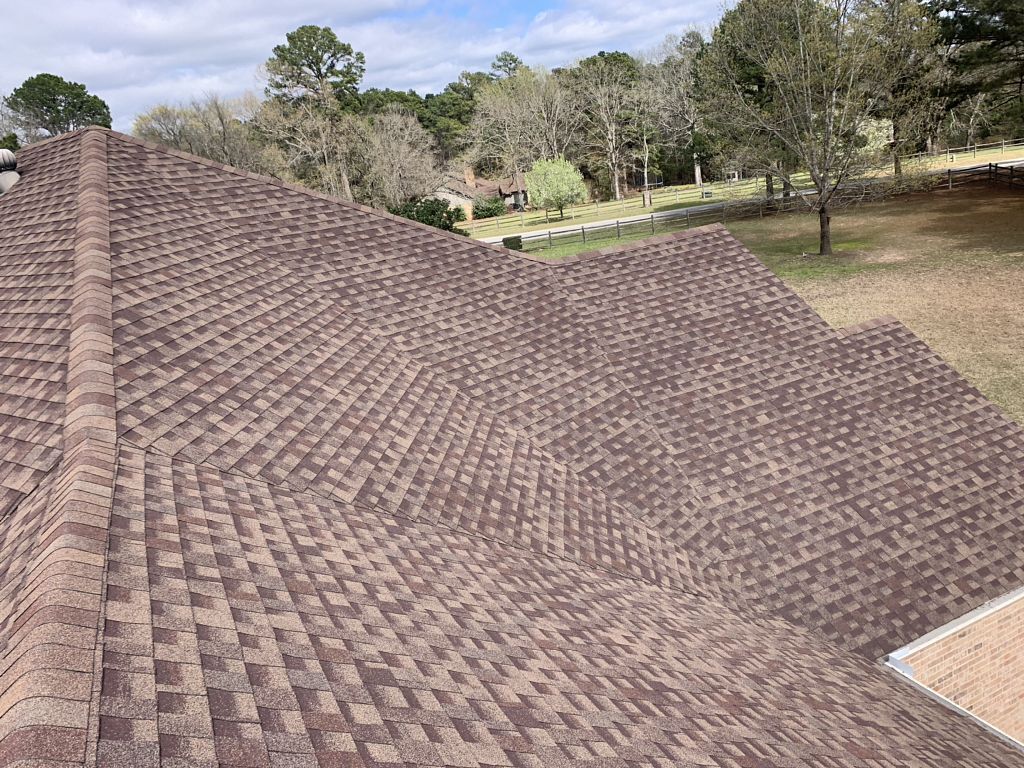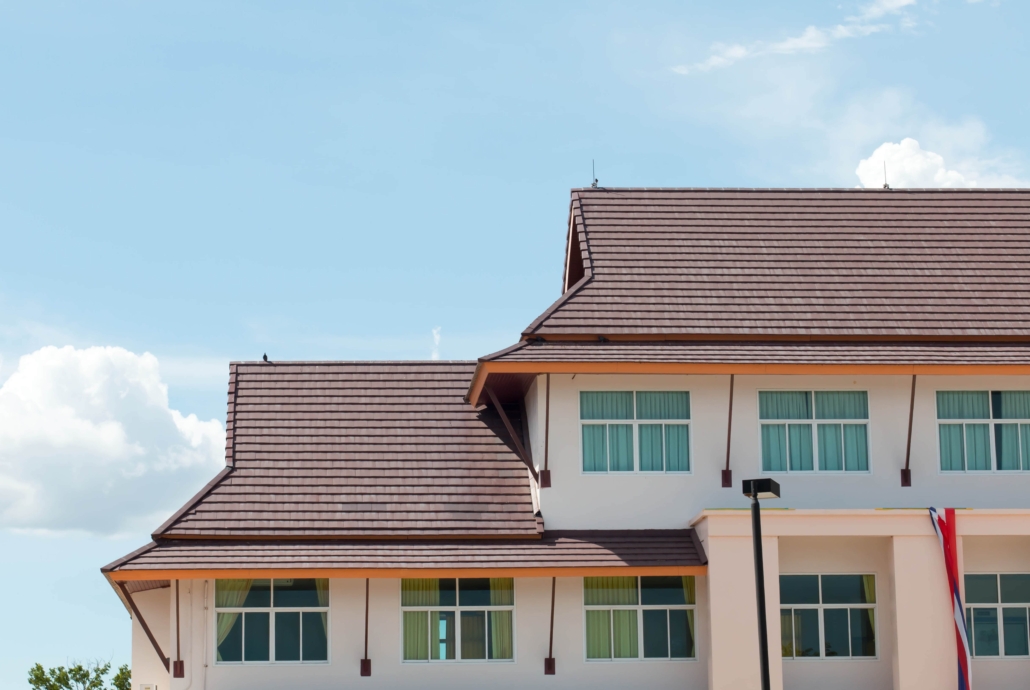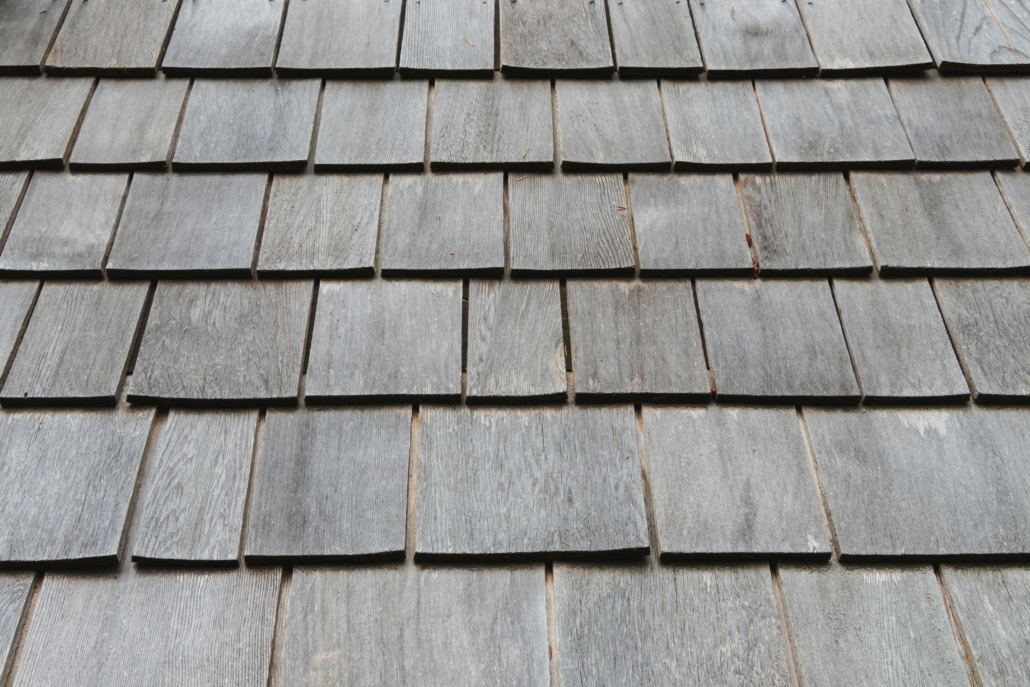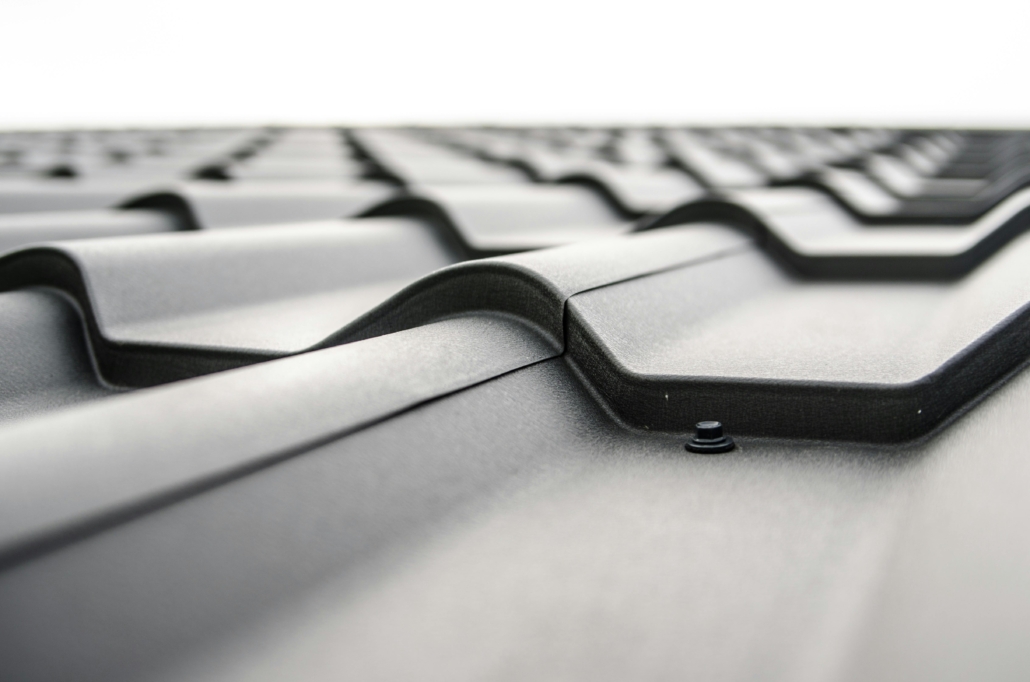Roofing in Texas: What Kind of Roof is Best for Your Home?
No two roofs are completely alike, and some roofing materials are better than others for hail defense, weather resistance, and more. When it comes to roofing in Texas, knowing the right roof materials to use can help your home renovation or roof replacement project go smoothly.
So, which roof type should you choose? That’s what we’ll explore below.
Common Roof Types in Texas and What They’re Best For
There are many different types of roofing you can choose for your Texas home, but only some will suit your budget, home architectural style, and other preferences. Let’s look at five popular roof types in Texas and dive into what makes them such stellar choices for homeowners like you.
Asphalt Shingles
Asphalt shingles are popular for their cost-effectiveness and suitability with many different home styles. Indeed, asphalt shingles might be the most common shingle type throughout Texas and the rest of the U.S.
3-tab shingles are the standard asphalt shingle type, although architectural shingles – which offer a better appearance and greater durability – are top choices for hail resistance without breaking the bank. In any case, you can’t go wrong with asphalt shingles if you want a good-looking roof for your home.

Advantages
- Very cost-effective
- Looks great with most home types
- Available in a variety of different colors and shapes
Clay Tiles
Clay tiles are pricier than asphalt shingles, but there are several big benefits that make them worth it for Texas homeowners. For starters, they look phenomenal, and they pair perfectly with Spanish-style architecture. Furthermore, clay tiles are durable and resistant to wear and tear – they’re capable of lasting for decades (or even up to 100 years) if they are well-maintained. They’re even good insulators, keeping your home cool in the hot Texas summers!

Advantages
- Energy-efficient
- Enhances the appearance of many Texas homes
- Highly durable and long-lasting
Wood Shakes
Many homeowners prefer more expensive but exceptional-looking wood shakes. Cedar is the most common wood for this roof type, lending your home a natural look and resilience against hail impacts and inclement weather. Cedar shakes are even available in a wide variety of different colors and styles, so odds are you can get a new wood shake roof that fits your home’s style, even if it started off with an asphalt shingle roof.
Just keep in mind that wood shakes can be expensive, and you’ll need to maintain your roof regularly to prevent long-term damage from insects, rot, and water-related wear and tear.

Advantages
- Arguably the best-looking roof type
- Very durable against certain inclement weather
- May increase your home’s value significantly if you decide to sell
Slate Tiles
Some Texas homeowners have switched to composite slate roofing, which offers an “old-world” look combined with superior longevity and durability compared to normal slate tiles. Slate tiles are only available in a handful of shades ranging from gray to blue, but slate tiles are extremely durable and resistant against practically all inclement weather, ranging from huge hail stones to fire.

Advantages
- Extremely durable
- Slate tiles can last for decades
- Don’t require a lot of maintenance
Metal Roofing
Last but not least is metal roofing, which covers your home in a sturdy steel shield. Metal roofing is very tough, especially against physical debris like hail or sticks from high winds. It’s also not overly expensive, particularly compared to wood shakes or clay tiles. But remember that metal roofing has limited aesthetic variety, so you’ll want to speak to a professional contractor about whether a metal roof will suit your home before ordering a full roof replacement in this material.

Advantages
- One of the toughest roofs available
- Relatively affordable compared to other roof types
- Can be painted later on if you want a different color
What Are the Ideal Roof Types for Your Home?
The right roof for you truly depends on your preferences, your home’s current architectural style, and whether you want your roof to do anything specific.
For instance, clay tiles are highly insulating, so they could be a great choice if you’re a homeowner concerned with energy efficiency. Combine a clay tile roof with other eco-friendly elements, like solar panels, and you could save a bundle on your utility bill each month.
Alternatively, maybe you’re looking for an affordable replacement roof that won’t require you to take out a huge loan. A roof made of asphalt shingles could be just the ticket, especially if you hire capable contractors to install architectural shingles that provide your roof with a better end result compared to standard shingles.
If you’re stuck or can’t choose between the different roof types, your roofing company should be able to provide suggestions based on things like your budget and your neighborhood. At Stonewater Roofing, we excel at helping homeowners choose the right roof for their needs, and all of our recommendations are informed by our many years of experience.
Conclusion
If you’re still unsure which roof type you should select for your Texas house, remember that knowledgeable contractors can help provide guidance and suggestions after examining your property. At Stonewater Roofing, our contractors are licensed and fully qualified to recommend a roofing solution for your home that fits your budget and unique needs.
Even better, we can tackle roofing replacement or repairs after you settle on a roofing material. Get started with a free damage assessment by contacting us today.

